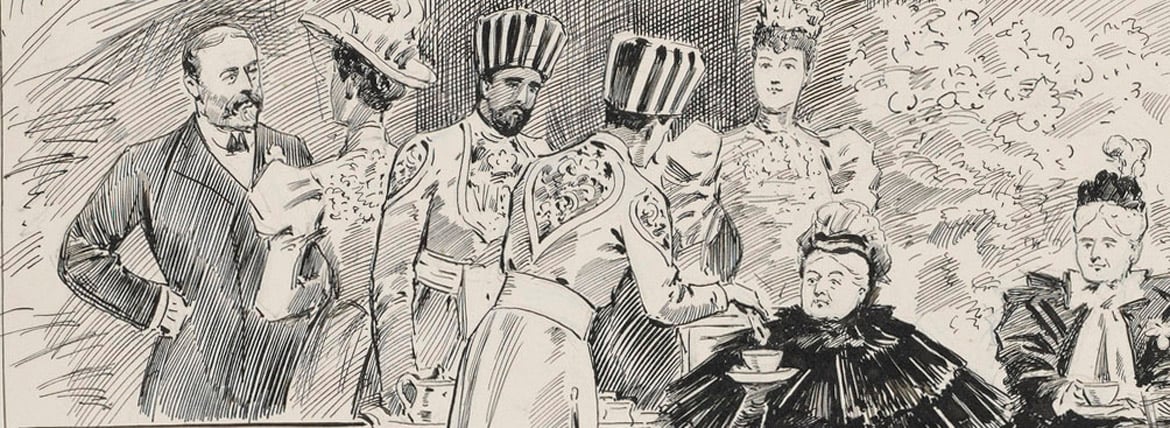Tea in the Royal Collection
Serving and sipping a favourite beverage

Although enjoyed in China and other parts of the world for centuries, tea-drinking did not become fashionable in Britain until the late seventeenth century. Since then, members of the royal court have enjoyed tea in a variety of formal and informal settings and have acquired ornate equipment for its consumption and display.
Tea first appeared in Britain in the 1650s, when it was served as a novelty in the coffee houses of London. In 1660 the diarist Samuel Pepys recorded trying 'a Cupp of Tee (a China drink), of which I had never drank before'. The drink became fashionable after the marriage of Charles II (1630–1685) to Catherine of Braganza (1638–1705) in 1662. The king's new wife introduced the royal court to the tea-drinking habits of her native Portugal, which had good trading links with the East, and tea quickly became popular among the aristocracy. In response to the new demand the East India Company began to import tea into Britain, placing its first order in 1664.
High taxes on both green and black tea meant only the wealthier classes could afford it for much of the eighteenth century. Tea drinking became a social activity, associated with luxury and fine manners. Ornate tea services with delicate china cups or silver teapots were used to present the tea, often on tables in the Chinese and Japanese style. It was in this period that Frederick, Prince of Wales (1707–1751) ordered an exquisite silver-gilt tea service, which remains in the Collection today.
'Afternoon tea', including small sandwiches or cakes, developed in the 1840s as an elegant means of bridging the gap between lunchtime and dinner. Queen Victoria (1819–1901) incorporated this refreshment into the garden parties which she held from the 1860s. Traditionally these were presentation events attended by debutantes, but from the 1950s they evolved into a way of rewarding and recognising public service. Each year some 30,000 guests now enjoy tea and cake at garden parties hosted by Her Majesty The Queen (b.1926) at Buckingham Palace and the Palace of Holyroodhouse.
Click on an object to find out more.







